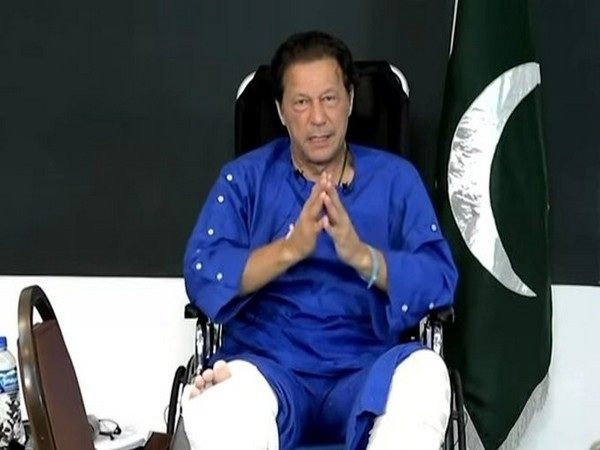Pakistan’s bane
06 Nov 2022 07:23:15

IN THE wake of attack on former Prime Minister Mr. Imran Khan, massive protests are coming up in some parts of Pakistan, indicating how the common people are reacting to the ugly event. Despite this, the reality of Pakistan is that the common people have never had any ‘say’ in national affairs. In other words, the common people in Pakistan are not considered as stake-holders in Pakistan’s public affairs. In still other words, the common people in Pakistan may get an opportunity to cast vote occasionally, but that does not mean they have a stake involved in Pakistan’s internal or external affairs. For, no matter if the Pakistanis vote or not, their opinion has little value in Pakistan -- since the affairs are run by the military and not by the popularly-elected civilians. All this tantamounts to one truth -- Pakistan has no democracy, despite occasional elections. For even if the elections throw up a popularly-elected government, the country does not see or sense democracy as a system. This has been Pakistan’s bane -- having only occasional democracy -- though the Pakistani ruling class does not see it that way. In less than two years after its formation in mid-August 1947, Pakistan saw the imposition of martial law for the first time.
Ever since, the country has seen on several occasions imposition of martial law during which the common people’s basic rights are handed over to the State. And in the past seventy-five years, Pakistan has also seen military Generals usurping the top position for themselves, lording over the country’s fate and people’s fortunes. That is the reason a country of twenty-two crore people is still reeling under utter chaos for 75 years -- mostly ruled by the military junta, mostly suppressed by the threat of terrible consequences if anybody raised voice of independence. When democracy is missing, the nation misses on genuine development and freedom and openness. Democracy may have its own faults, as some people say. But absence of democracy generally means absence of anything sensible being available to common people. When democracy is missing, only the privileged few get all opportunities, while the rest reel under neglect. This is what has been happening in Pakistan for all the seven-plus decades since 1947.
The military brass rules the roost -- naturally at gun-point, so to say -- proverbial or actual. The attack on Mr. Imran Khan is a good pointer to this effect. For, the military appears to have issued him a warning -- against his political activity that brings much embarrassment to the establishment of the people from the military and their political stooges. Mr. Imran Khan, too, was a political stooge who later fell from grace. The attack at Gujranwala was, in a way, warning to Mr. Imran Khan to behave. If he follows the diktat, he would be okay. If he chooses to insist upon continued political rebellion, then he follows in dangerous footprint.
This has happened to many former rulers of Pakistan -- Mr. Nawaz Sharif, General Pervez Musharraf, for example. Both of then are in exile, waiting for the military’s good grace to allow them to stage a political comeback. In fact, General Musharraf should have understood the military way of managing things in Pakistan. But he also fell prey to a notion that he was invincible. In Pakistan, invincible is only the military, and an individual who may have served in the military. Nobody knows how the top brass operates and who its members are. Nonetheless, the military is the only institution that has kept democracy in Pakistan crushed under its boots. In the process, the common people have suffered for the past 75 years. Their fundamental rights are abrogated and their personal freedom is superseded. In such conditions, the greatest casualty is the evolution of the society into a fine civilisation. That has been the bane of Pakistan -- with a terrible backwardness keeping them chained to ground.